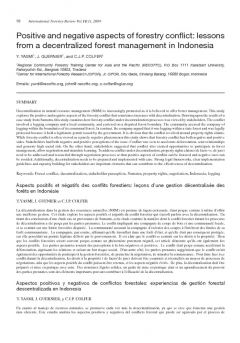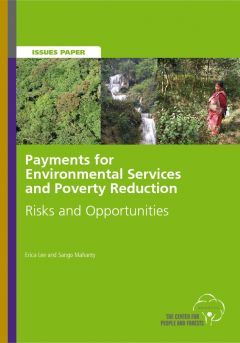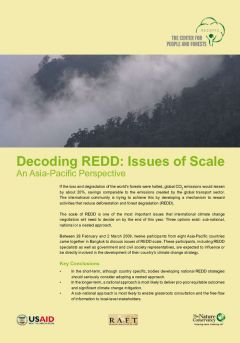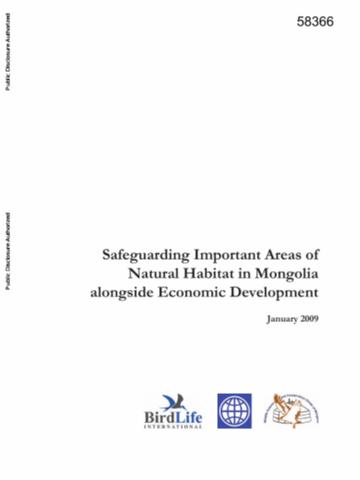Positive and Negative Aspects of Forestry Conflict: Lessons From Decentralized Forest Management in Indonesia
Decentralization in natural resource management (NRM) is increasingly promoted as it is believed to offer better management. This study explores the positive and negative aspects of the forestry conflict that sometimes increases with decentralization. Drawing upon the results of a case study from Sumatra, this study examines how forestry conflict under decentralization processes was viewed by stakeholders. The conflict involved a logging company and a local community, and centered on a disputed forest boundary.









